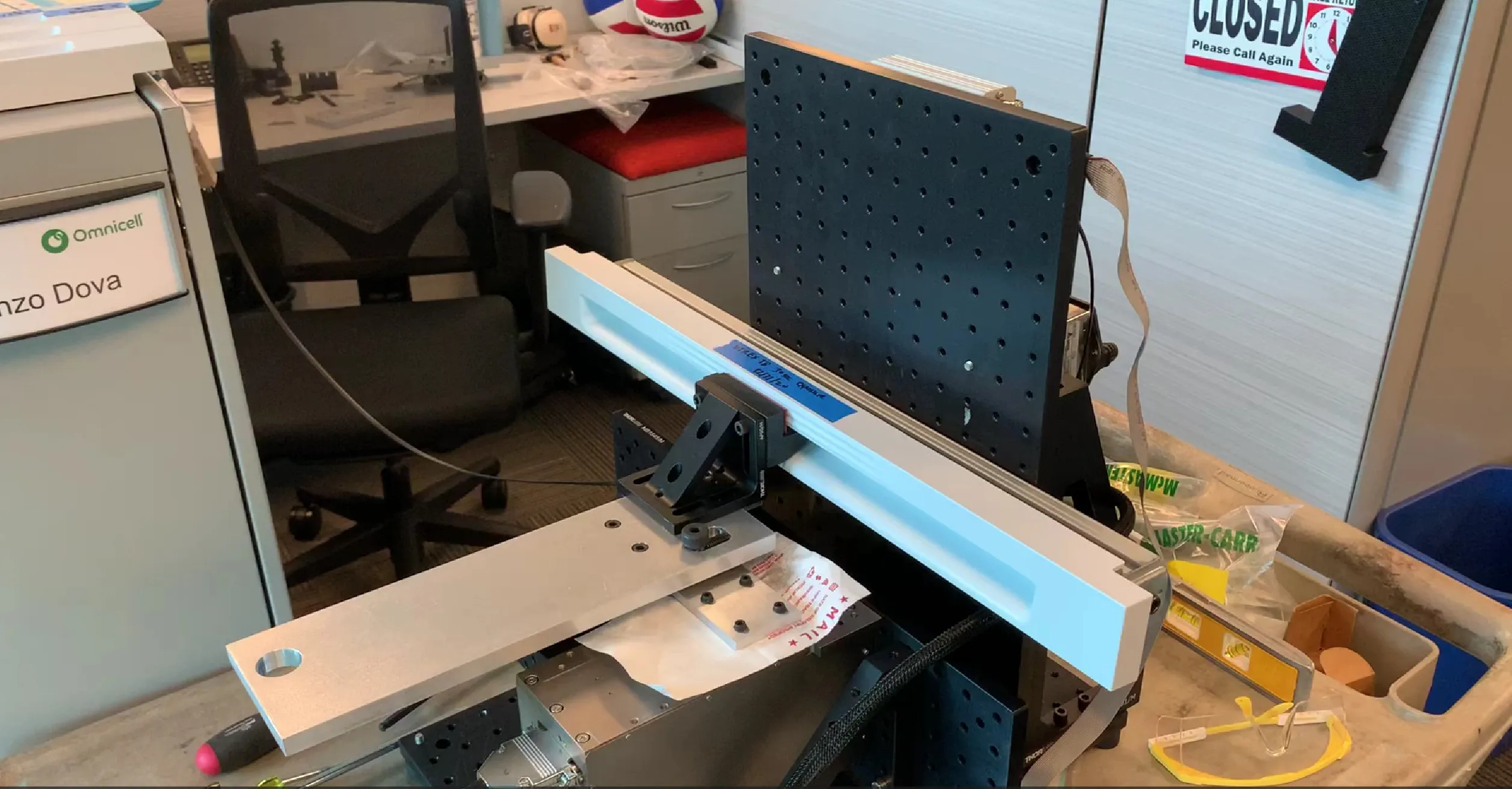XT Drawer Handle
SMAC Moving Coil Actuator Automated Testing Fixture, Enhance Durability of XT Cabinet Drawer Handle
The Challenge
Address pharmaceutical cabinet handle loss of functionality due to chemical degradation from COVID-19 pandemic cleaning protocols.
The Outcome
Successful development of a testing methodology using the SMAC actuator, leading to the identification and validation of materials that significantly improved the durability of the cabinet handles against chemical degradation.
Role
Team lead, SMAC fixture integration, SMAC coding, test fixture design, prototyping, CAD
About
This project tackled the challenge of pharmaceutical cabinet handles experiencing significant degradation due to the effects of aggressive cleaning agents. In response, a detailed testing process was developed, utilizing the SMAC Moving Coil Actuator system. This approach allowed for the accurate simulation of real-world usage conditions, focusing on how these handles would withstand repeated exposure to the chemicals in question.
The outcome was highly successful, leading to the identification and validation of materials that showed improved durability against chemical wear. Through meticulous testing and analysis, the team was able to ensure that the new materials selected for the cabinet handles would significantly reduce the likelihood of functionality loss, thereby enhancing the overall reliability of the pharmaceutical cabinets.


During the peak of COVID-19 pandemic, my team was notified of significant material degradation with the pharmaceutical cabinet drawer handles, resulting in loss of functionality. This problem quickly became a top priority, necessitating immediate and effective solutions. Through meticulous manual chemical testing on our Omnicell products, I identified certain chemical cleaning agents that heavily compromised plastic durability of the drawer handles.
To accurately mimic the everyday wear and tear by users, it was crucial to gather precise data. I created a specialized test handle, equipped with strain gauges, to measure stress in multiple directions. This handle was then utilized in a user case study with Omnicell employees to gather data on the force dynamics of drawer usage. This instrument handle was integrated into the SMAC Moving Coil Actuator setup, a precision actuator system, enabling recreation of the strain data collected from the study data.
A 3D printed "hand" was designed, complemented with silicone pads on its digits and palm, to better simulate the human hand interaction with the drawer handle. To validate the efficacy of this fixture, handles were treated with previously identified aggressive cleaners and subjected to a reliability test, ensuring the re-emergence of the earlier observed defects.
I devised a thorough training curriculum and an operational guidebook, subsequently entrusting the test fixture to a senior design engineer. This testing fixture became instrumental in evaluating and selecting new, more resilient plastic materials for the handles, marking a significant advancement in our efforts to prevent chemical damage and ensure the long-term functionality of our users.

